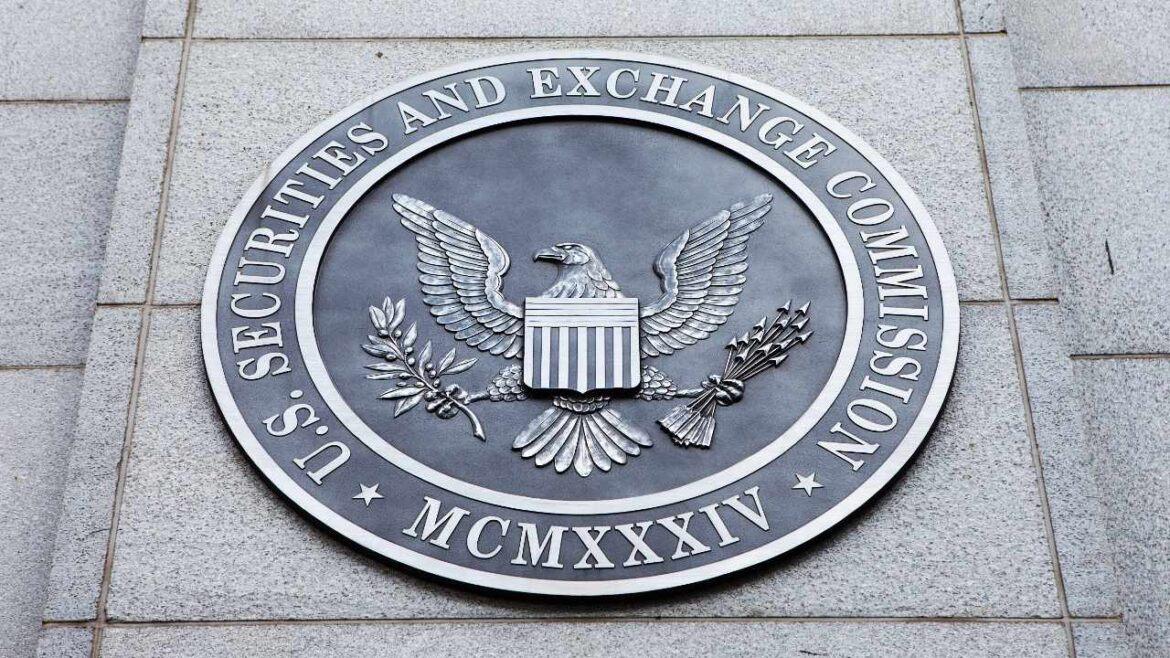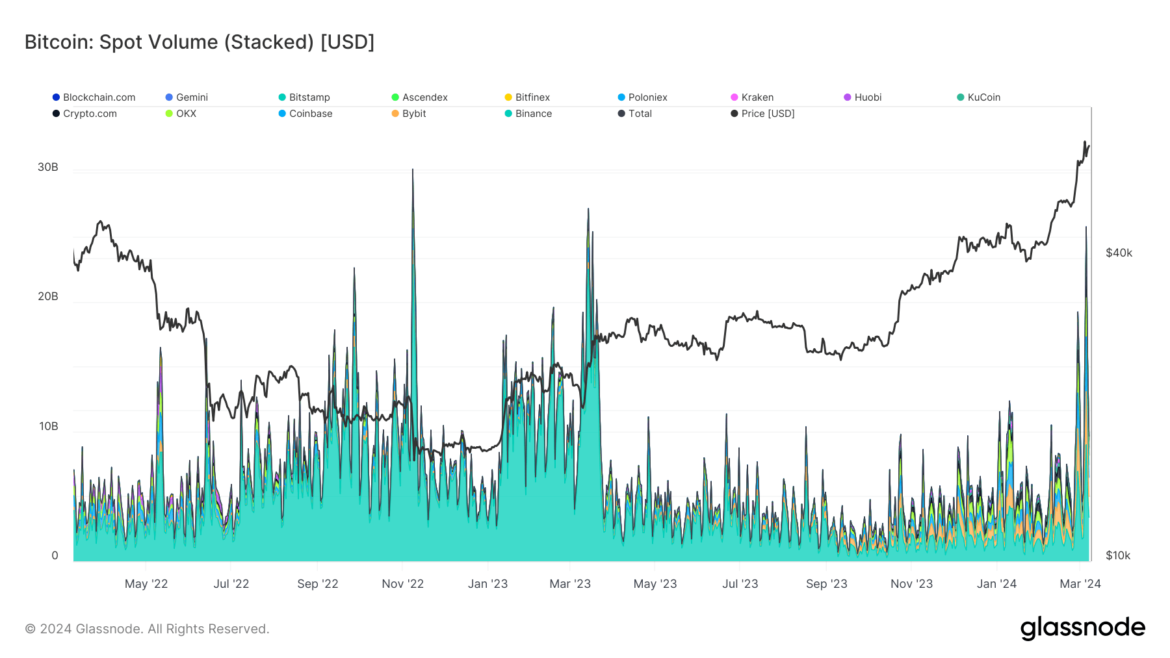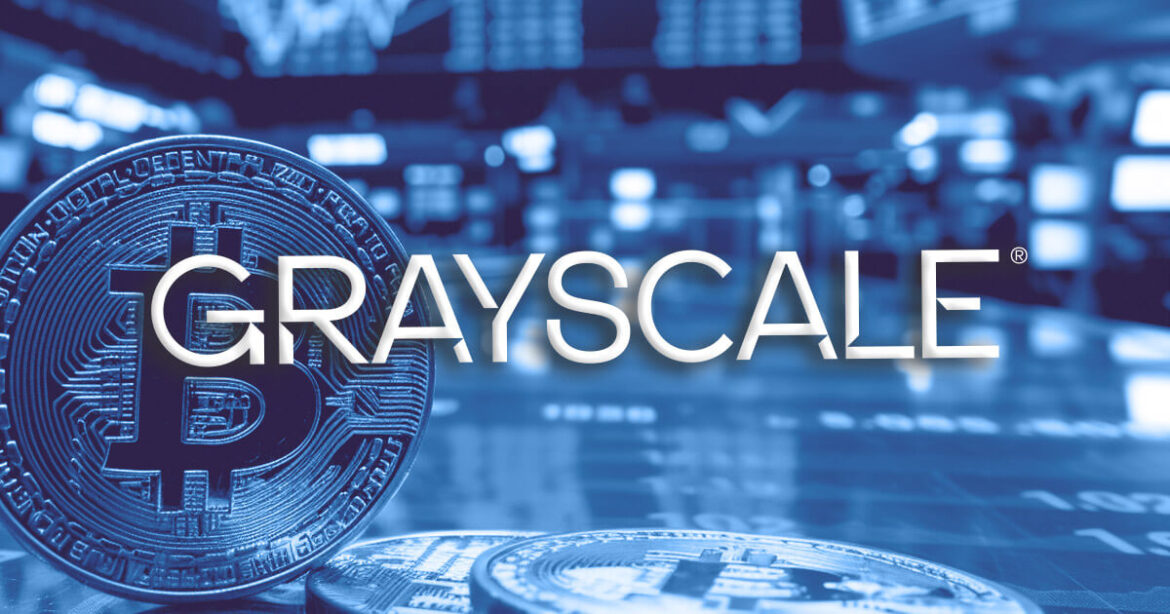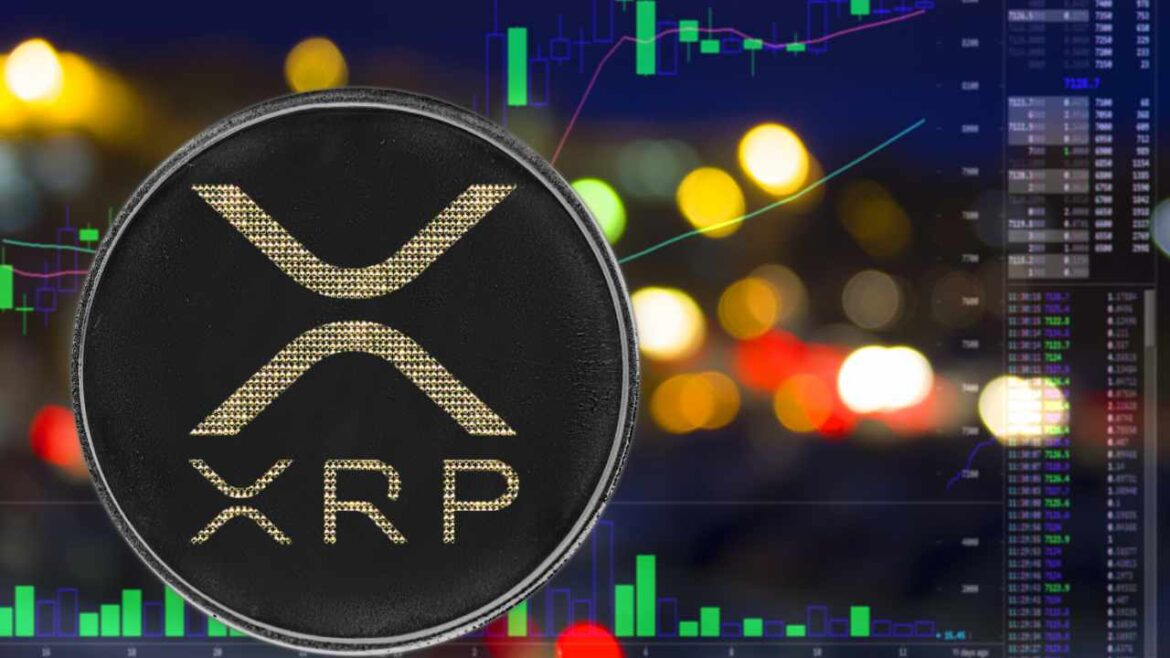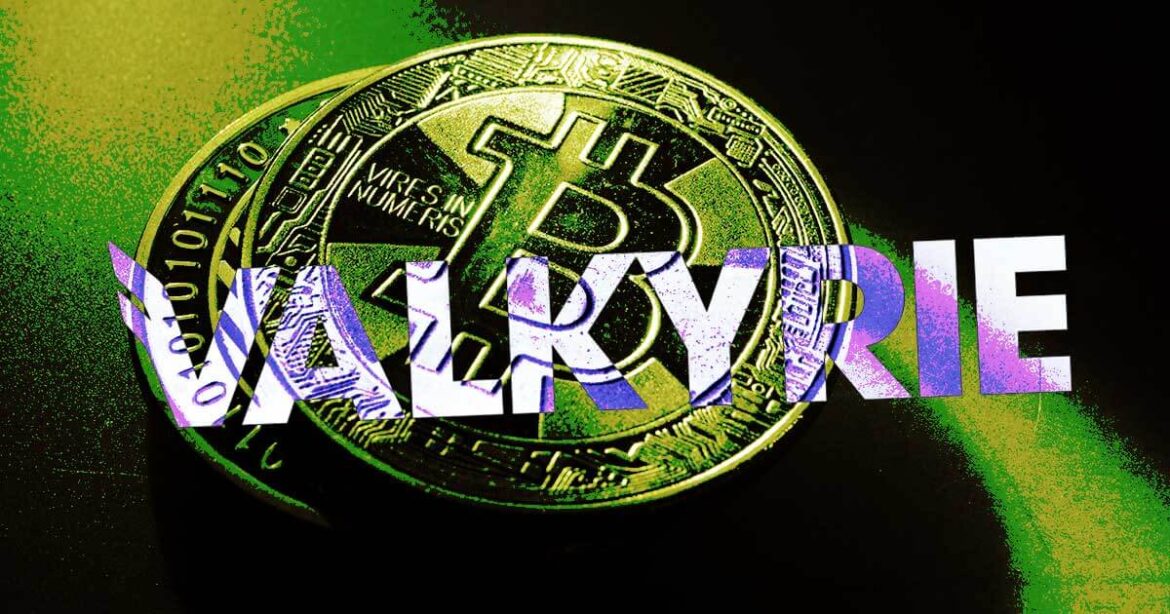 Cetera Financial Group, a platform with $475 billion in assets under administration and $190 billion in assets under management, has approved four U.S. spot bitcoin exchange-traded funds (ETFs) for use in brokerage accounts on its platform. “We are prudently embracing bitcoin ETFs and we prioritized developing this important guidance to help our financial professionals implement […]
Cetera Financial Group, a platform with $475 billion in assets under administration and $190 billion in assets under management, has approved four U.S. spot bitcoin exchange-traded funds (ETFs) for use in brokerage accounts on its platform. “We are prudently embracing bitcoin ETFs and we prioritized developing this important guidance to help our financial professionals implement […]
Source link
spot
US Senators Push SEC to Stop Approving Spot Crypto ETFs — Say Other Crypto Markets Risker Than Bitcoin
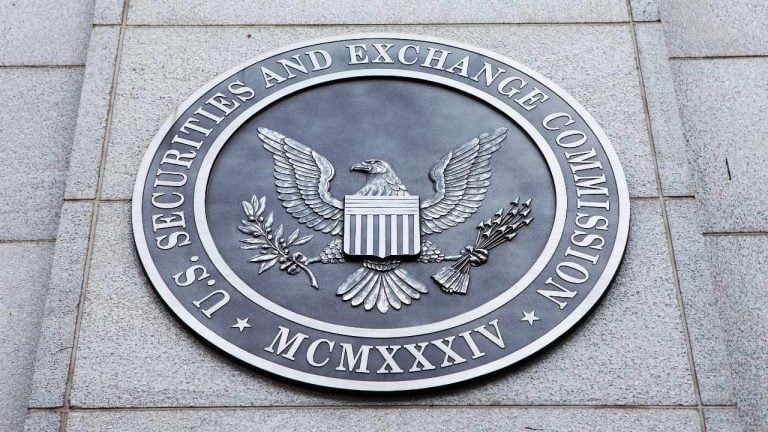 Two U.S. senators have urged U.S. Securities and Exchange Commission (SEC) Chairman Gary Gensler to refrain from approving additional crypto exchange-traded fund (ETF) applications. The lawmakers cautioned: “However vulnerable bitcoin may be to fraud and manipulation, markets for other cryptocurrencies are far more exposed to misconduct.” Lawmakers Say SEC Should Not Approve Spot Crypto ETFs […]
Two U.S. senators have urged U.S. Securities and Exchange Commission (SEC) Chairman Gary Gensler to refrain from approving additional crypto exchange-traded fund (ETF) applications. The lawmakers cautioned: “However vulnerable bitcoin may be to fraud and manipulation, markets for other cryptocurrencies are far more exposed to misconduct.” Lawmakers Say SEC Should Not Approve Spot Crypto ETFs […]
Source link
Quick Take
Recent Glassnode’s data captures intriguing shifts in Bitcoin’s spot volume, tracking the aggregate trading volume of Bitcoin against USD-based currencies, both fiat and stablecoin, across various exchanges. On March 5, there was a surge in spot volume to $26 billion across all exchanges, a pinnacle not reached since the SVB collapse in March 2023.
During the SVB collapse, Binance dominated the spot volume, contributing $22 billion of the total $27 billion, as reported by Glassnode. Now, spot volume has again reached a similar level, spurred by Bitcoin’s surge to a record $69,000 and its subsequent 15% drop. In this latest bout of volatility, the exchange landscape was more distributed, with Binance, Coinbase, and Bybit recording spot volumes of $9 billion, $4 billion, and $4 billion, respectively.
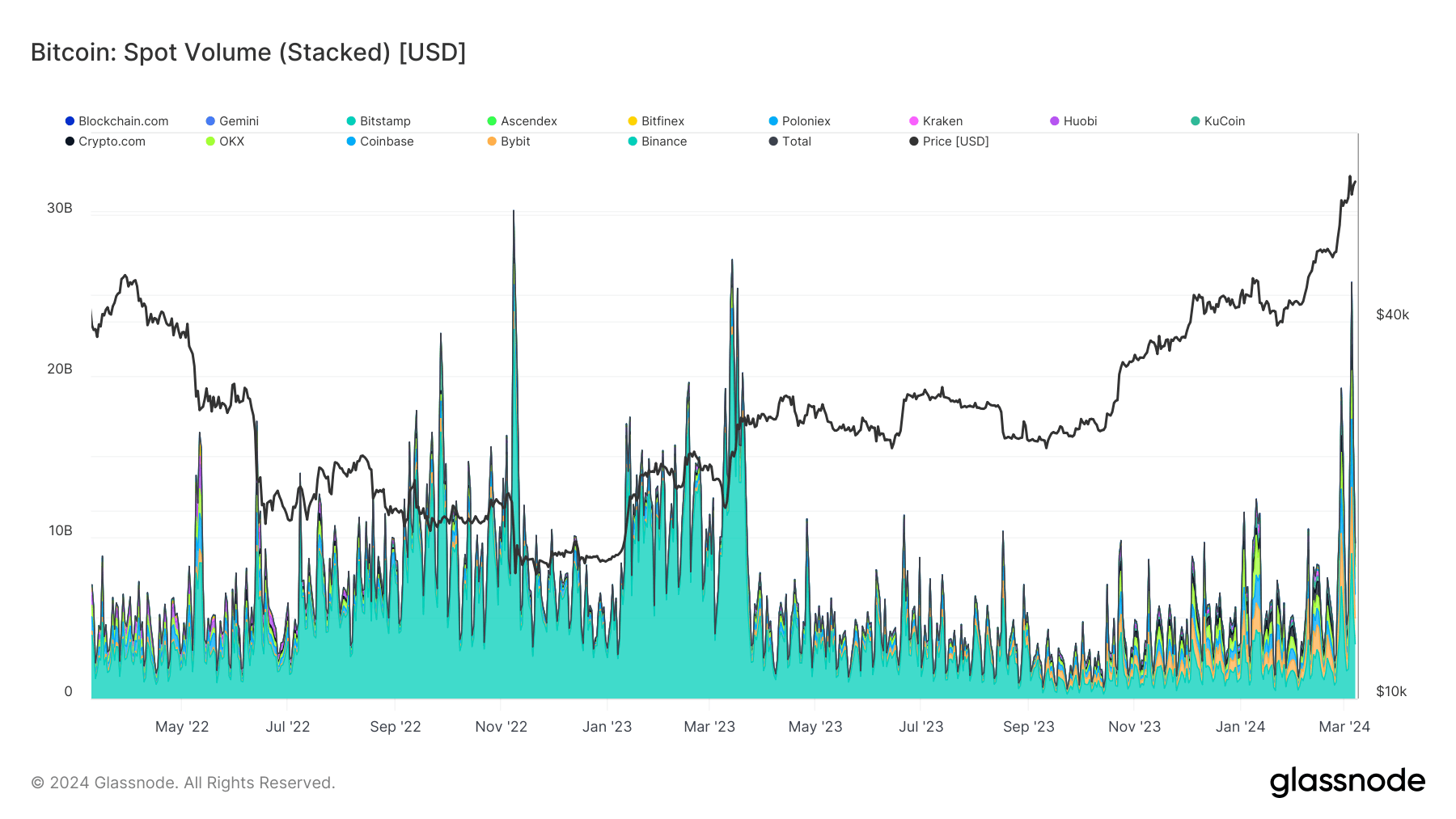
The data depicts a stark decrease in Binance’s market share over the year, as its spot volume shrank from $22 billion during the SVB event to $9 billion in the following year’s volatility peak.
The post High volatility drives spot Bitcoin volume to $26 billion appeared first on CryptoSlate.
Latam Insights: El Salvador Won’t Sell Its Bitcoin, Bitcoin Spot ETFs Land In Brazil and Peru
 Welcome to Latam Insights, a compendium of Latin America’s most relevant crypto and economic news during the last week. In this issue: President Bukele states El Salvador will not sell its bitcoin, Bitcoin ETFs land in Brazil and Peru, and Argentine President Javier Milei aims to criminalize central bank money issuance. El Salvador Won’t Sell […]
Welcome to Latam Insights, a compendium of Latin America’s most relevant crypto and economic news during the last week. In this issue: President Bukele states El Salvador will not sell its bitcoin, Bitcoin ETFs land in Brazil and Peru, and Argentine President Javier Milei aims to criminalize central bank money issuance. El Salvador Won’t Sell […]
Source link
Grayscale lobbying for regulatory approval of options for spot Bitcoin ETFs
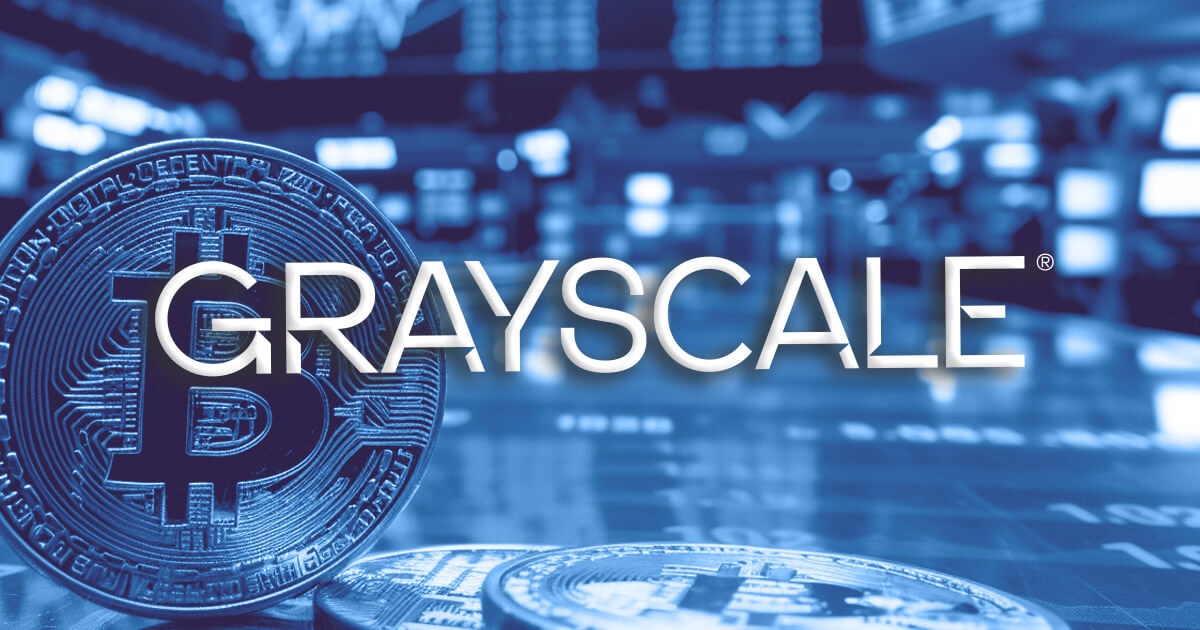
Grayscale is lobbying for the US SEC to approve options on its spot Bitcoin exchange-traded fund (ETF), Reuters reported on Feb. 29.
Grayscale CEO Michael Sonnenshein said:
“It is vital to the interests of GBTC and all spot Bitcoin [exchange-traded product] investors to access exchange-listed options on GBTC and other spot Bitcoin ETPs.”
The SEC approved Grayscale’s spot Bitcoin ETF (GBTC) in January. Unlike most of the other newly approved spot Bitcoin ETFs, GBTC was converted to an ETF from an existing fund.
Options could enhance regulation
According to Sonnsenshein, the SEC’s rejection of options on GBTC would unfairly discriminate against shareholders because the regulator has approved options on Bitcoin futures ETFs.
He added that options could also support spot Bitcoin ETF investment more broadly as they could provide price discovery, assist market condition navigation, and support hedging and income generation.
Furthermore, options would bring BTC within the regulatory perimeter, allowing more market participants, including contract merchants and broker-dealers, to trade the funds.
Grayscale’s letter was reportedly prompted by the SEC’s decision to open comments on options for its ETF on Feb. 23. The regulator’s notice also opened comments on Bitwise’s equivalent ETF and other NYSE-listed trusts that hold Bitcoin.
Previously, in January, the SEC opened comments on options for BlackRock’s Nasdaq-listed spot Bitcoin ETF and various Cboe-listed spot Bitcoin ETFs.
Grayscale is a key ETF player
Grayscale’s communications with the SEC are critical because its past efforts have contributed to approvals. After the SEC dismissed Grayscale’s spot Bitcoin ETF application, the firm initiated a legal case against the regulator and won a victory that compelled the SEC to re-address the matter.
SEC chair Gary Gensler cited that outcome in his agency’s approval of spot Bitcoin ETFs, noting that the legal result made approval the “most sustainable path forward.”
The company and other asset managers have also applied for spot Ethereum ETFs. Grayscale’s application recently gained support from Coinbase on Feb. 21.
While Grayscale’s latest letter does not compel the SEC to act in any way, the company’s past significance means that its comment could influence future outcomes.
Coinbase on Grayscale Ethereum Spot ETF Application: ‘ETH Is a Commodity, Not a Security’
 Coinbase has answered the SEC request for comments on the proposed rule change to list the ETH Grayscale Fund as a spot ETF. Coinbase stated that ether was a commodity, and its status has been publicly recognized in a variety of circumstances by U.S. agencies and courts. Coinbase Supports Ethereum Grayscale Fund Conversion as a […]
Coinbase has answered the SEC request for comments on the proposed rule change to list the ETH Grayscale Fund as a spot ETF. Coinbase stated that ether was a commodity, and its status has been publicly recognized in a variety of circumstances by U.S. agencies and courts. Coinbase Supports Ethereum Grayscale Fund Conversion as a […]
Source link

Quick Take
According to Nate Geraci, President of the ETF Store, 2024 has marked a significant year for Bitcoin Exchange-Traded Funds (ETFs), particularly BlackRock IBIT and Fidelity FBTC. Geraci highlights these two Bitcoin ETFs as standing among the top 8 in terms of ETF inflows this year, a notable achievement considering the diverse ETF landscape.
CryptoSlate data on Feb. 21 reveals that IBIT has experienced net inflows totaling $5.5 billion, while FBTC has witnessed net inflows of $3.7 billion. These impressive numbers are in the company of inflows seen by three S&P 500 ETFs (VOO, IVV, & SPLG), the QQQ, Vanguard Total Stock Market ETF (VTI), and the iShares S&P 500 Value ETF (IVE), according to Geraci.
The success of IBIT and FBTC is further demonstrated by the combined net inflow of all spot US Bitcoin ETFs surpassing the $5 billion inflow benchmark. However, it is vital to quantify this success in a broader context. The aggregated investment across all Bitcoin US ETFs is estimated at around $41 billion.
Their success highlights the growing acceptance of Bitcoin as an asset and the potential future of ETFs in the digital asset space.
The post Two Bitcoin spot ETFs rank among top 8 for ETF inflows in 2024 appeared first on CryptoSlate.
Beyond Bitcoin: Ripple CEO Says Approval of Multiple Crypto ETFs ‘Inevitable’ — Embraces Idea of Spot XRP ETF
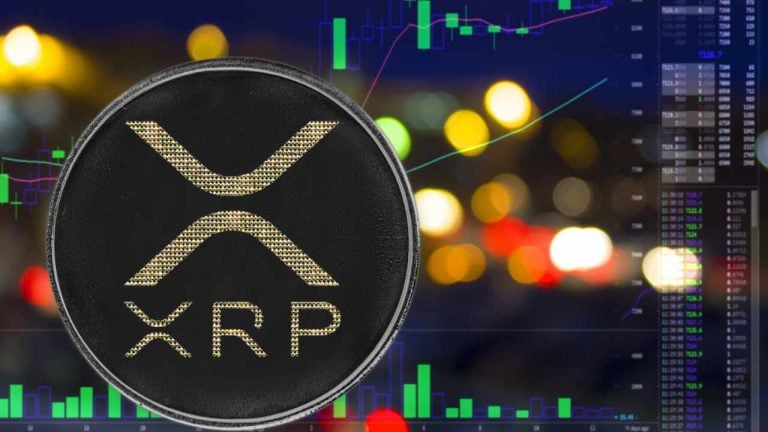 Ripple CEO Brad Garlinghouse believes that the U.S. Securities and Exchange Commission (SEC) will approve spot exchange-traded funds (ETFs) based on crypto tokens other than bitcoin. “I think it’s inevitable that there’ll be multiple ETFs around different tokens,” he stressed, noting that Ripple would welcome an XRP ETF. “In my opinion, it makes these markets […]
Ripple CEO Brad Garlinghouse believes that the U.S. Securities and Exchange Commission (SEC) will approve spot exchange-traded funds (ETFs) based on crypto tokens other than bitcoin. “I think it’s inevitable that there’ll be multiple ETFs around different tokens,” he stressed, noting that Ripple would welcome an XRP ETF. “In my opinion, it makes these markets […]
Source link
Quick Take
In the nascent arena of spot Bitcoin ETFs, competition is swiftly evolving. The first month saw a noteworthy $1.5 billion net inflow, representing about 32,000 Bitcoin, according to BitMEX Research. Moreover, the aggregated volume of these ETFs overpassed a landmark $30 billion threshold, according to The Block.
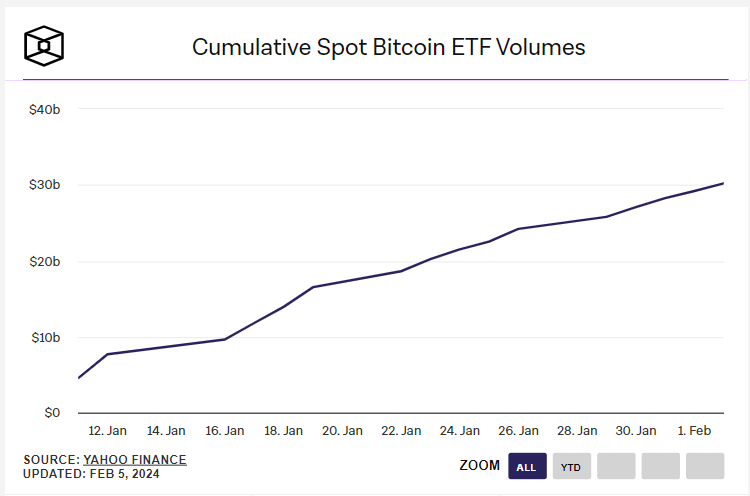
A shift in dominance among these Bitcoin ETFs was recorded. The initial supremacy of the Grayscale Bitcoin Trust (GBTC), which accounted for nearly 50% of the volume on its opening day, dwindled to 38% on Feb. 2.
Conversely, BlackRock’s IBIT and Fidelity’s FBTC ETFs have observed their shares grow by approximately 25% and 20%, respectively. This shift is primarily due to the competitive fee structures; GBTC’s fees are 1.5%, whereas FBTC and IBIT are set at a more attractive 0.25%.

GBTC, which initially held 620,000 BTC before the ETFs started trading, now has approximately 477,000 Bitcoin, a 26% drop from the top.
This substantial decrease represents the enduring sell-off pressure within GBTC, even though the outflows are gradually decelerating. Furthermore, the potential for these coins to shift into the more cost-effective ETFs is occurring. Specifically, Bloomberg ETF analysts estimate that one-third of GBTC outflows are redirected into these spot ETFs.
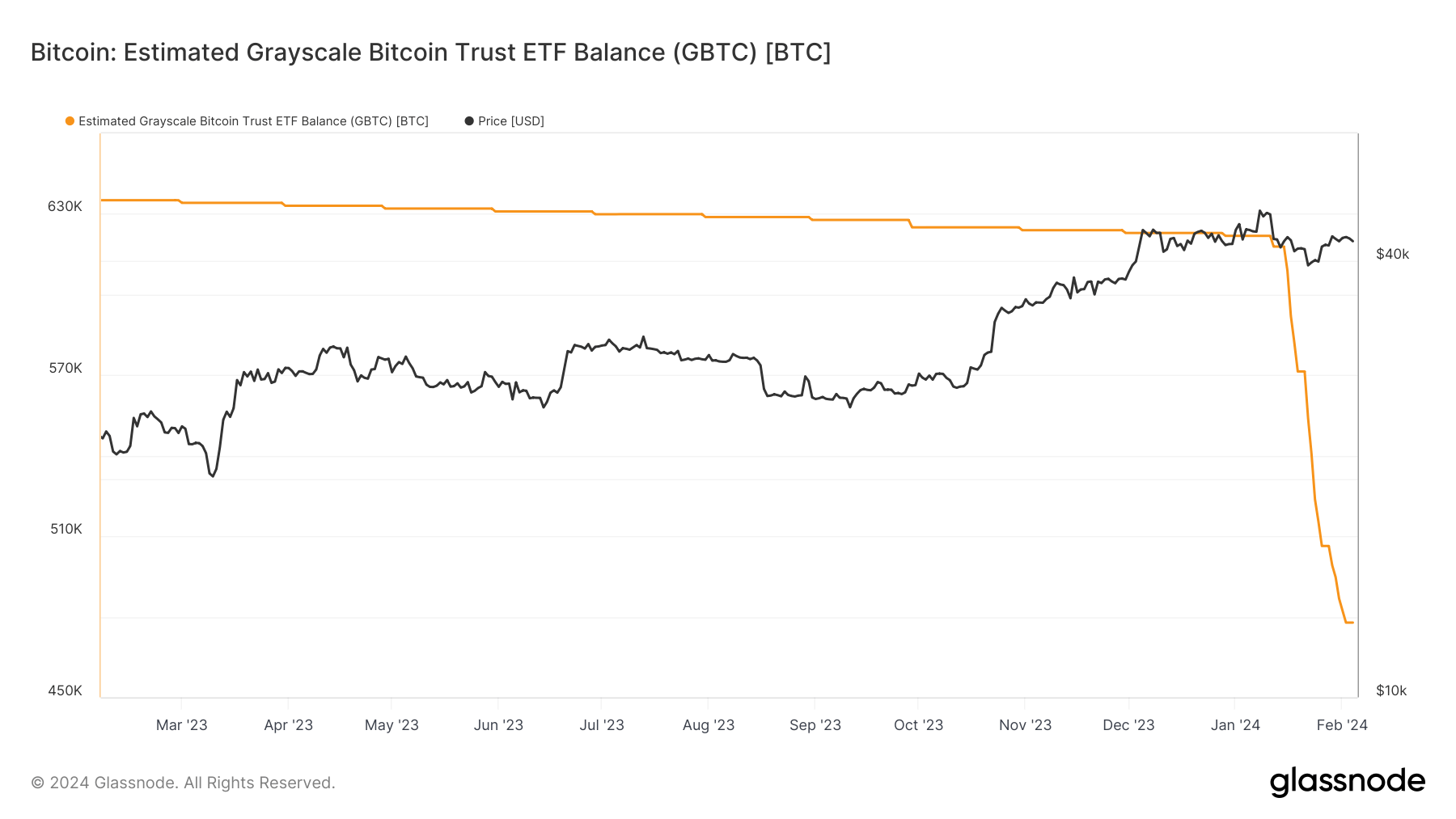
The post Spot Bitcoin ETFs’ cumulative trading volume exceeds $30 billion appeared first on CryptoSlate.

Vaklyrie Investments and BitGo have entered into a custodianship agreement, according to an announcement from the latter company on Feb. 1.
Mike Belshe, CEO of BitGo, said:
“… [Valkyrie] took a new step forward with their newest ETF to help investors around the world get access to Bitcoin. It’s a privilege to be their custodian to support their product. We aim to demonstrate the value in private custody solutions to drive the next wave of adoption.”
BitGo’s announcement otherwise indicated that ETF issuers such as Valkyrie must secure their digital assets with qualified custodians, adding that this requirement is critical to U.S. regulators and to the ETF industry globally.
Though BitGo did not specifically identify the ETF in question, current filings show that the partnership relates to the Valkyrie Bitcoin Fund (BRRR).
The agreement between the two firms, as filed with the U.S. Securities and Exchange Commission (SEC), explains BitGo’s custodial role more thoroughly. BitGo will maintain one or more custody accounts to handle the receipt, safeguarding, and maintenance of digital assets and fiat currency. It will also segregate funds and avoid commingling of funds unless requested by Valkyrie.
The agreement additionally says that BitGo will provide Valkyrie with wallet software and non-custodial wallet service, fiat services, and API access. It notes that the services are not intended for third-party payments.
Valkyrie will continue to rely on Coinbase
One section of Valkyrie’s 8-K filing indicates that its agreement with BitGo will not replace Coinbase as Valkyrie’s ETF custodian. The filing reads:
“The Trust’s existing custody arrangement with [Coinbase] is unaffected by the entry into the Agreement. The Sponsor anticipates utilizing the custodial services of both Coinbase and BitGo to custody the Trust’s bitcoin.”
Bloomberg ETF analyst James Seyffart called the latest development a “diversification’ of Valkyrie’s custodians, noting that Valkyrie and other spot Bitcoin ETF providers only had one custodian at launch time.
Bloomberg charts indicate that eight of eleven spot Bitcoin ETFs, including BlackRock’s iShares Bitcoin Trust (IBIT), initially relied on Coinbase as a custodian. The exceptions are the VanEck Bitcoin Trust (HODL), which instead relied on Gemini, the Hashdex Bitcoin ETF (DEFI), which instead relied on BitGo, and the Fidelity Wise Origin Bitcoin Trust (FBTC), which relied on Fidelity.
Coinbase is also involved with several spot Bitcoin ETFs through surveillance-sharing agreements, a role that is separate from custody.


